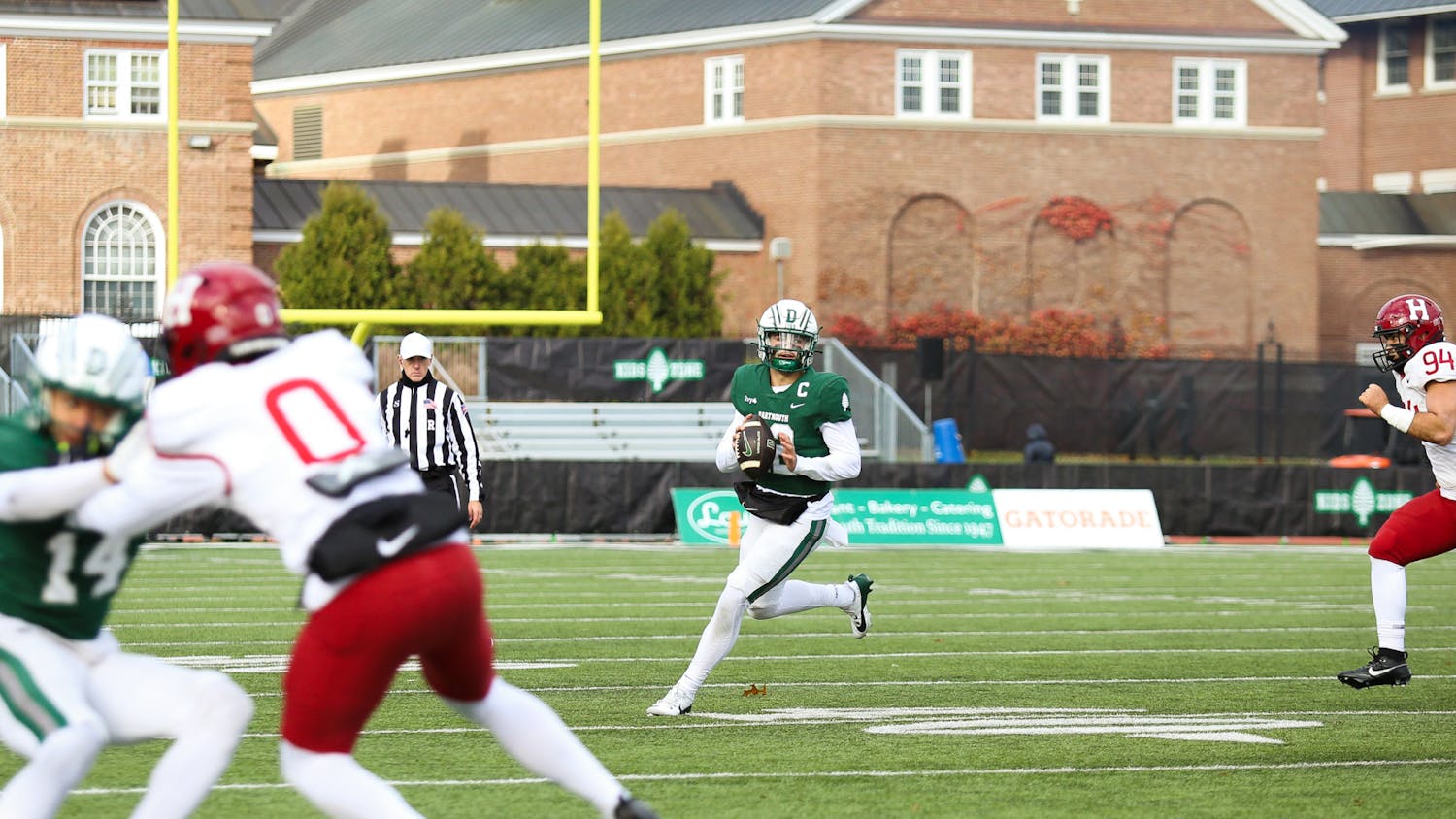The Big Green a team without a coach narrowly edged out the U.S. Military Academy for first place, earning its first top finish at the national tournament since the program's inception in 1992. Cornell University finished third while powerhouse Northwestern settled for fourth place despite its first-place finish in the epee.
Championship scoring is based on three separate fencing events that feature different weapons. The overall team score is calculated with a point system, and the team with the most points from the three events is declared the champion. Two impressive third-place finishes and a sixth-place sabre finish were good enough to give Dartmouth the national championship.
"To make the jump from being competitive at the regional level to being the best at the national level is astounding," captain Dave Seliger '12 said. "For a team that does not even have a coach and must drive themselves to all the events, this is the sweetest reward we could ever ask for."
The rest of the collegiate fencing world was equally impressed. The Dartmouth fencing team recently received the Coach of the Year award from the Northeast Fencing Conference, which includes both club and Division-I fencing teams.
Dartmouth finished the event with a team total of 835 points, 10 more than second-place Army. Cornell and Northwestern totaled 790 and 765 points, respectively.
"After the individual squads wrapped up, we didn't find out the team results for a few hours," foil fencer Scott Brookes '14 said. "When we eventually found out that we had won, it was very exciting."
The first event features the epee, a heavier thrusting weapon. In this event, hits include touches with the tip of the blade and specifically exclude touches with the side of the blade. Both fencers can earn a point on simultaneous touches.
Peter Horak '14, Adam Omar '15 and Seliger headed the Dartmouth squad for the epee event. After a successful first day, the squad received a fourth seed for the direct elimination tournament. After cruising to victories against the University of Southern California and Cornell, the Big Green had their backs to the wall against Arizona State University. Down 4-1 in a first-to-five match against former epee champion ASU, the Big Green was able to channel its focus and stun its opponents to tie the series, 4-4.
"We kept fighting back so intensely that we shocked [ASU]," Seliger said. "We all fenced our hardest and watched all of our hard work pay off as we ripped off the victories."
Horak faced down ASU's A-strip fencer and narrowly emerged with a 5-4 victory to carry Dartmouth into the next round.
"It really epitomized the Dartmouth fencing team for the tournament," Seliger said. "We did not see a team out there that we could not beat, regardless of how badly we were losing in the match."
Dartmouth lost the next round to eventual epee champion Northwestern but rallied back to claim a bronze medal after soundly beating the U.S. Naval Academy.
The next of the three featured events was the foil, which features a very light thrusting weapon that requires hits to the torso to score. Similar to epee, foil requires touches to be with the tip of the blade only.
Dartmouth's foil squad consisted of Tianchi Xu '12, Stuart Ghafoor '14 and Brookes. Another impressive showing from the Big Green on day one earned the team a third seed for the direct elimination tournament. A hard-earned victory over Army in the quarterfinals propelled the squad into a semifinal matchup against Texas A&M University. The eventual champions knocked Dartmouth out of the tournament.
Dartmouth rallied in the bronze medal matchup against the University of Florida. Again finding themselves down 4-1 in a first-to-five setup, Brookes led the team out of an elimination bout to get the round to 4-2.
"We ended up down 4-1, and I got up for the next bout," Brookes said. "I was terrified. I am the most inexperienced foil fencer on the squad, and I didn't want to lose it for the team."
Strong efforts from Brookes and Ghafoor after a Xu victory helped Dartmouth steal another win as the foil team claimed third place.
The last of the three fencing events is the sabre, which features a light weapon used for cutting and thrusting. All parts of the body above the waist excluding off-sword hand are eligible for hits, and the whole blade can be used to score touches.
Tommy McQuillan '13, Nate Utterback '14 and Ivan Antoniv '14 headed the Dartmouth sabre squad for the tournament. Following the trend, the Big Green's strong first-day performance earned them a fifth seed overall in the direct elimination round.
Dartmouth cruised through matches against Florida and Navy to reach the quarterfinals. Matched up against the University of Massachusetts, Amherst, Dartmouth fell into the consolation bracket after a tough loss.
Following strong performances from McQuillan and Utterback to defeat Michigan State University, Dartmouth lost to Army in the final game of the consolation bracket to earn a sixth place finish out of 35 teams in the competition.
The strong performances in the three events propelled the Dartmouth team to claim the overall victory, a feat made all the more impressive by the fencers' lack of a coach. In a world where many teams have multiple coaches, Dartmouth's club fencing team defied all odds.




